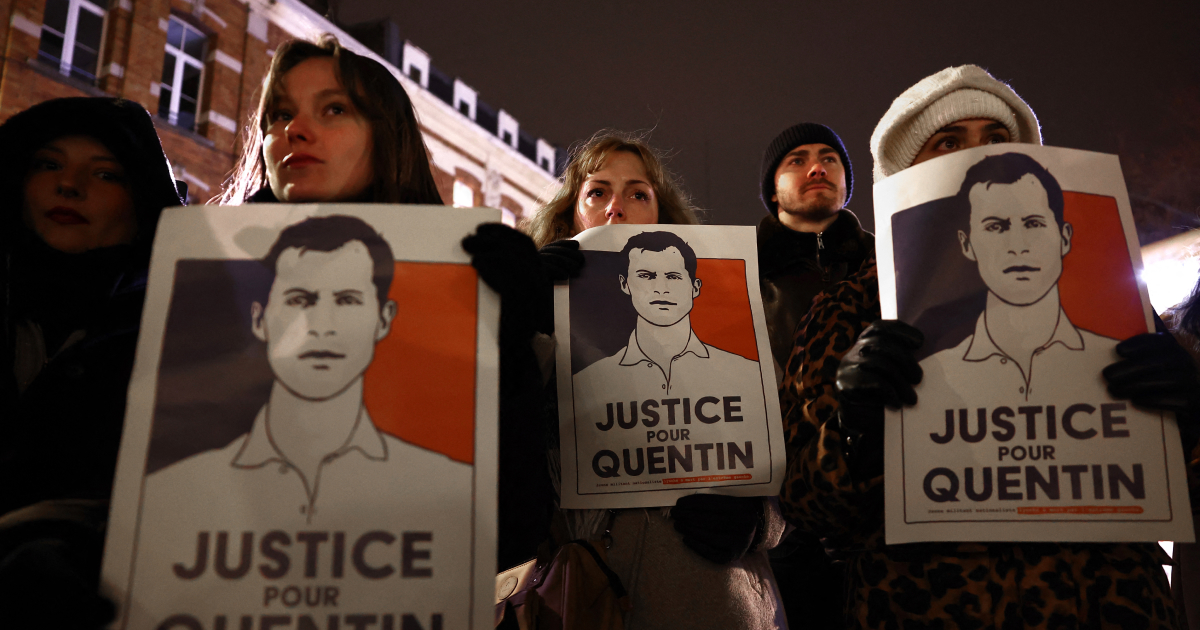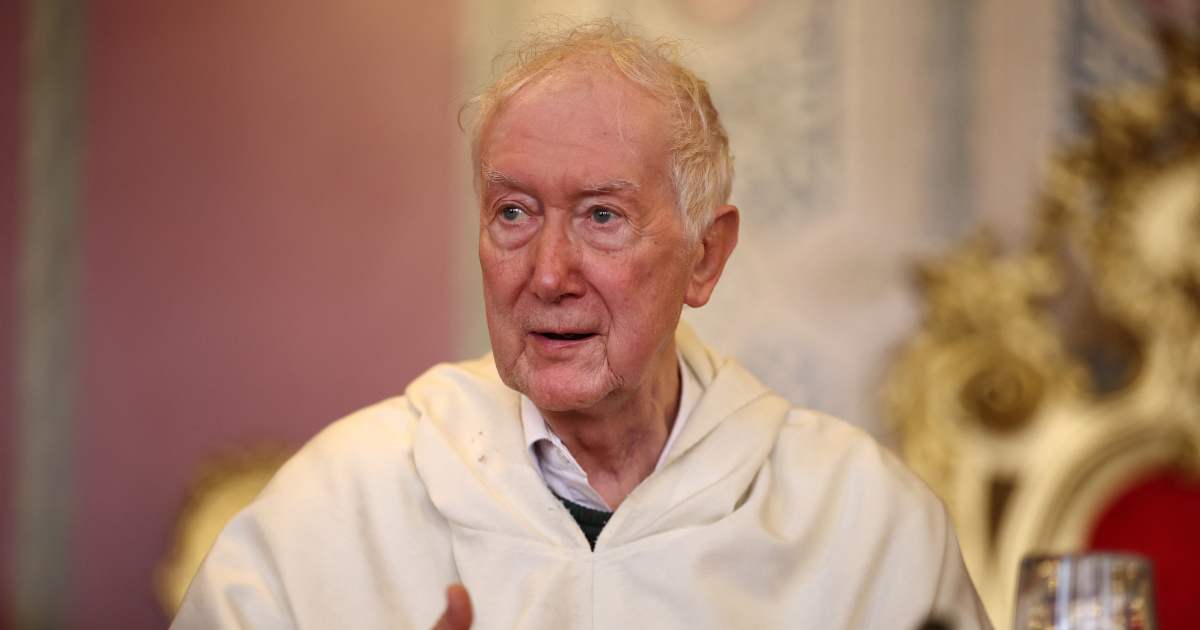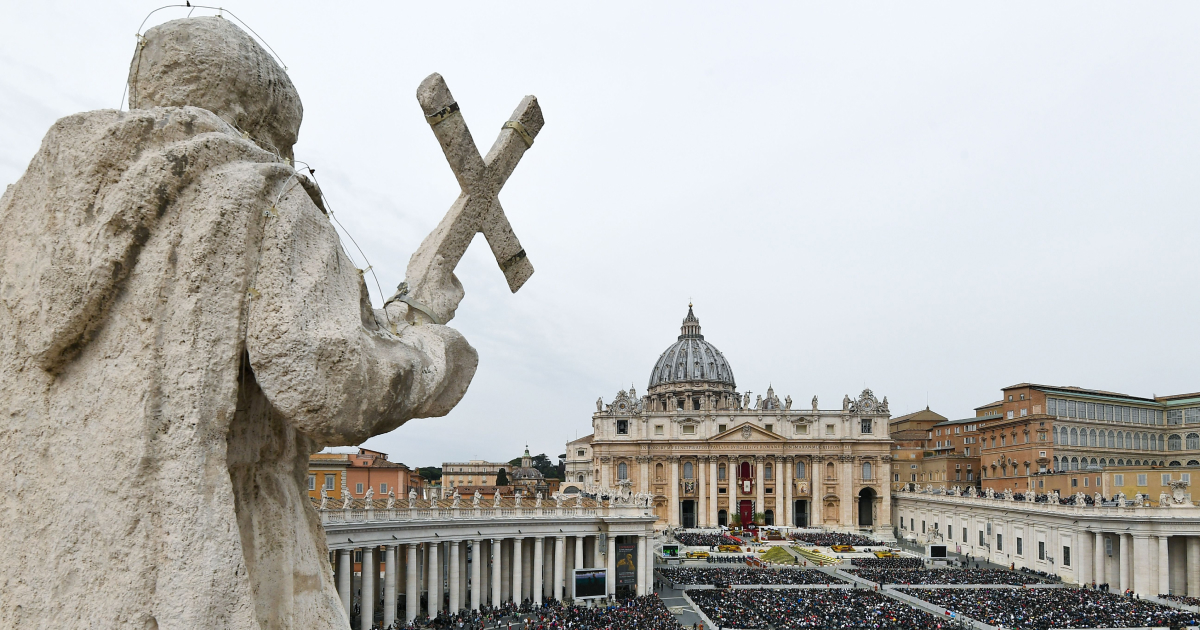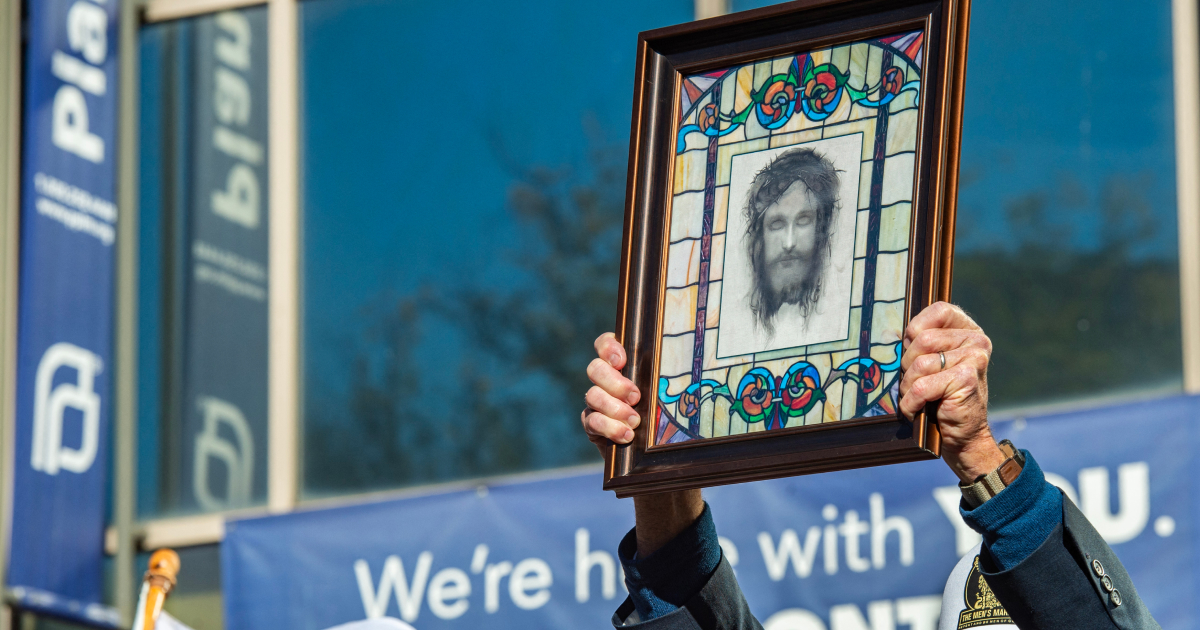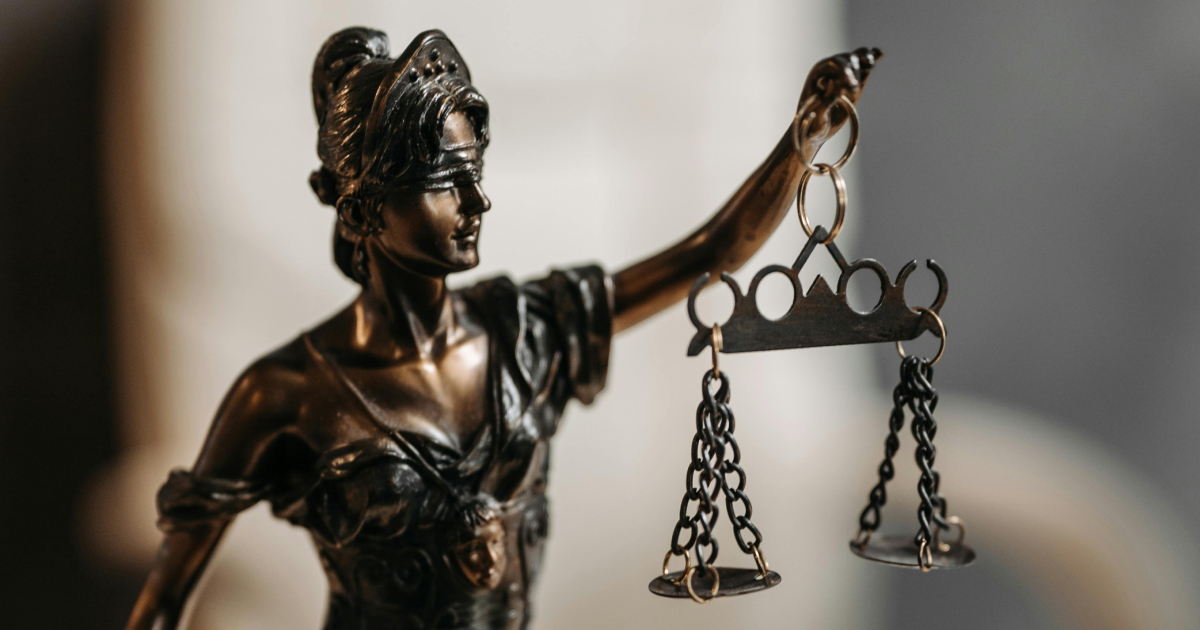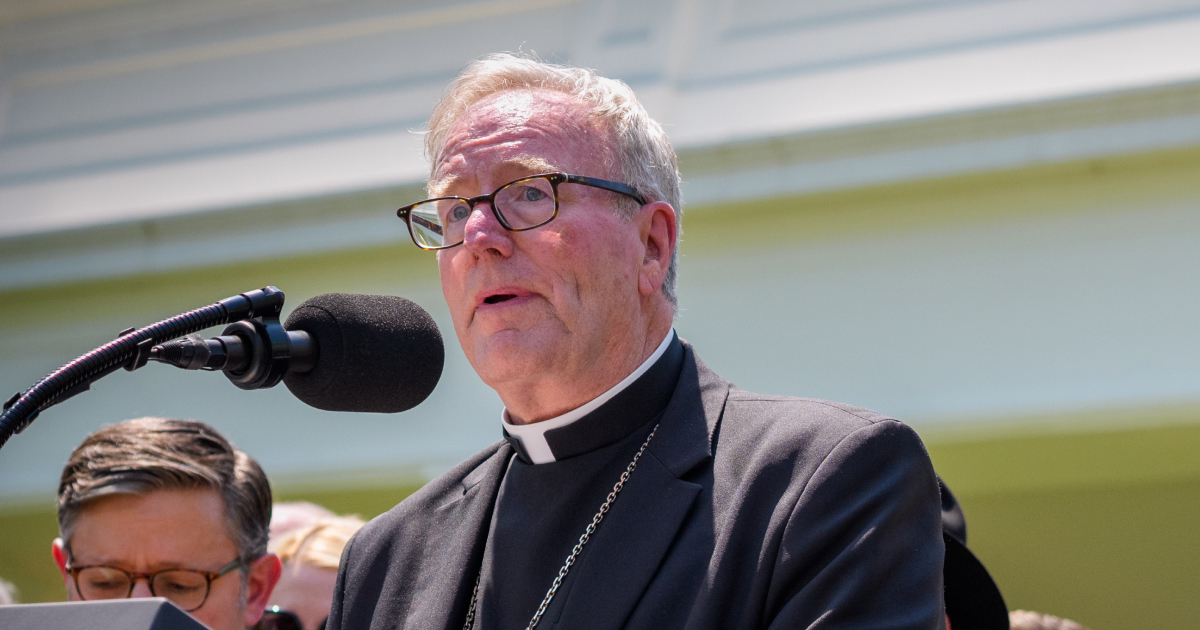Cardinal Vincent Nichols has led the Catholic Church in England and Wales for more than fifteen years, guiding it through a period of rapid social change, deepening secularisation but also renewed evangelisation.
Born in Crosby on 8 November 1945 and ordained to the priesthood in 1969, he has served as Archbishop of Westminster since 2009, and was created a cardinal by Pope Francis in 2014. Over a ministry spanning six decades, he has become one of the most recognisable and influential Catholic voices in British public life.
In this exclusive interview – likely to be one of his final public conversations before the appointment of his successor as Archbishop of Westminster – Cardinal Nichols reflects on his 56 years of priesthood and leadership. He speaks candidly about the lessons of his early ministry amid the sectarian divide of 1960s Liverpool, the moral and social challenges facing modern Britain, and the abiding centrality of prayer and belonging in a fragmented world.
Catholic Herald: Reflecting on your early years as a priest amid the sectarian divide between Catholics and Protestants during the 1960s to 1970s in the Archdiocese of Liverpool, and on your ordination there, how did that shape your understanding of pastoral ministry? What lessons have you learned from those formative years – and how do they inform your episcopal ministry today?
Cardinal Nichols: Well, maybe I could summarise that around a single person. There was a Sister of Notre Dame called Sister Hilary, and I was a very young priest just starting, and she was nearby. She'd been retired as the principal of a big school, and she said, “We're going to do something.” She was the kind of woman you took notice of and did what you were told. “We're going to start an education centre," she said. "And you're going to come and see the Director of Education.”
So the Director of Education was duly rung up – his name escapes me now. And she said, “This is Sister Hilary, and I want to come and see you with Father Nicholas.” (Oh, I think, this must be because they knew each other quite well.) He said, “Well, how about if you came tomorrow at 11 o’clock?” “Just a minute,” she says, “I'll ask if that's convenient for Father Nicholas.”
And we start an adult education centre down in the Toxteth area of Liverpool. We got the use of the school thanks to the Director. And it was fantastic. It was an old school and it was a bit of a mess, so I said, “Sister, we’d better start getting people in to help clear it up.”
“No,” she said, “I'll do it.” And she cleaned the building from top to bottom. I said, “Sister, this is ridiculous.” “It is not ridiculous,” she said. “Nobody comes across this door until the place is ready and in good shape. And that's how it will be kept. If you ask people to come in and do the job, it'll be half done and it'll never get to where we want it.” It was amazing, the way she understood that.
She also understood how people who had messed up their schooling – some of them couldn’t read or write, it was a really poor area – still aspired. I’ll never forget one couple who were interested in art, and they were late one day. I said, “Where have you been?” They were really very straightforward people, probably unemployed, and they said, “We’ve just been to the library to look for books on how Monet painted the water lilies, because that’s what we want to try and do.” And I thought, goodness me – talk about serving through education the dignity of people.
Then there’s another story for the second part of your question. I remember her telling me that once on the 12th of July, the anniversary of the Battle of the Boyne, she was going down to the south end, to the South Docks, and a policeman stopped her and said, “Sister, I wouldn’t be going down there today if I were you.” “Why not?” she replied. “Well, the band is lining up and the Orange Marches are going to begin.”
An hour later, the Orange Band came along – and there, on the back row, was Sister Hilary playing the drum. So she, in herself, showed how it was possible to live these things together.
And I remember there was a Protestant school nearby, and I was the first Catholic priest ever to go to it. It had been there for 100 years. It was at that time that things were moving quite rapidly, actually. So if anything, what that taught me was not to be afraid to be yourself – and also that the possibilities were endless.
CH: As Auxiliary Bishop of Westminster from 1992 to 2000, consecrated by Cardinal Basil Hume himself, you took on responsibilities such as Vicar of North London and chairing the Department for Catholic Education and Formation. How did this role prepare you for higher leadership, and what were some of the key challenges you faced supporting the diverse Catholic communities in London?
CN: There are two very different questions there. One would be about the parishes in north London, for which I had some care. That was a big challenge. At that time, there were 75,000 people going to Mass every Sunday in that one area, which was probably bigger than half the dioceses in England in some ways. So I worked hard at going round and getting to know people and trying to learn the geography first of all.
And I think what I learned there, more than anything, was how crucial it was to give support to the priests – how they had proper degrees of autonomy. They were the pastors; it was the people in the parish who were put in their care. They weren’t just a kind of substation. So to support them and to learn from them were probably some of the important things that I learned how to do a bit more. And also not to think that there are programs that would fit every parish. So, not to take too strong a view along the lines of: “We all must be doing this now; we all must be doing that now.”
Sometimes programs are put forward with great enthusiasm. Some people take to them; some people don’t. They suit some circumstances, they don’t suit others. So I learned – and maybe some people would criticise me for it – that initiatives can best [be implemented] locally when they’re fashioned to suit the circumstances, rather than being a hand-me-down that somebody else has thought through.
Now, when it comes to my role as chairman of the Catholic Education Service nationally, that was a bit different. That was unusual, because it normally would have been a diocesan bishop or an archbishop in charge of that. But I was asked to do that as an auxiliary bishop.
That would have been my first inklings of and relationships with government ministers and the Department for Education. The Catholic Education Service had been going for a hundred years and they had great experience. So I, as it were, found myself a bit like back in the relationship with Sister Hilary again. These guys knew what they were doing and I was to back them up, maybe speak in public and do those sorts of things.
So I think that gave me an understanding of the importance of the Church working with top-level professionals, and not thinking that somehow being ordained a priest or being ordained a bishop makes you omni-competent – because you’re not. So it was a lot about cooperation and shared ministry.
CH: How was the jump from being a priest of the Diocese of Liverpool to becoming Auxiliary Bishop in Westminster? Especially given London being in the South and Liverpool in the North – what was the big difference in the 1990s?
CN: Well, there’s a bit you’re missing, because I left Liverpool not to become an auxiliary bishop here [in London], but to become General Secretary of the Bishops’ Conference for about eight years.
Now that meant, most days I would come in at quarter to nine and sit at the side of the desk [of Cardinal Basil Hume]. It was my job to bring in things to do with the Bishops’ Conference because he was the president. So for those eight years, I saw him probably most days – and that taught me an awful lot about what a bishop does.
He was a northerner too, so we actually had quite a few chats about how strange it is down here. Those years were very important. I didn’t get to know London as a whole – I was still a Liverpool priest. I used to go back for the big events and all the rest of it. But it was a real period of understanding episcopacy a bit more and getting to know London a bit more.
One day I came in and sat there and he said, “Oh, I have to tell you that the Holy Father has appointed you now to be an auxiliary bishop in this diocese with me. Do you accept?” I said, “Well, can I think about it?” And he said, “What for? What do you want to think about it for? The Pope’s asking you – what are you going to say?” I said, “I’m supposed to say yes.” “That’s right,” he said, “now go and write your letter and get on with your work.” So in that sense, it was a big step, but in another sense, I’d had a wonderful preparation.
CH: Your appointment as Archbishop of Birmingham in 2000 came after being considered as a potential successor to Cardinal Hume in Westminster. During your time in Birmingham you saw initiatives such as the Walk With Me spiritual programme and preparation for St. John Henry Newman’s beatification. How would you describe the spiritual and administrative growth you experienced in Birmingham? And what do you see as your most enduring legacy there?
CN: In Birmingham? I think they’ve long forgotten! Well, you know, the first thing that I had to come to terms with was that I’d never been to Birmingham in my life. It was always just a place you went through. Except my father’s sister was a religious nun in Selly Park in South Birmingham, and by that time she was in the infirmary. So I knew my way to Selly Park and back – but that was about it.
It’s a very widespread diocese – you can drive a hundred miles north and a hundred miles south. So there’s a lot of travelling to do and a lot of getting to know. What fascinated me a lot and helped a lot was to begin to understand something of the historical background of Birmingham. Because actually, Birmingham and that area was the real growth point of the Catholic Faith after the restoration of the hierarchy, and also in preparation for it.
Partly because of the big landed families who protected priests; partly because the first Synod of Westminster – the first meeting of newly appointed bishops – took place in Birmingham. It wasn’t in Westminster. It was called the Synod of Westminster but took place in Oscott College. Cardinal Newman preached that famous thing about a “second spring”. So there was a lot of the early heartbeats of restored Catholicism in Birmingham – and the great figure of Bishop Ullathorne.
I got to appreciate that and it gave me a much deeper sense of the history of which we’re a part. The Walk With Me [prayer campaign]– there’s one there for Advent, take part if you want – now has been going next year for 25 years. Three times a year: Advent, Lent and Pentecost. Probably each year now there's about half a million copies distributed. I’m proud of that because it puts into people’s hands, in a quiet, gentle way, the invitation of prayer in a slightly different way – a more thematic, more structured way.
Faith grows quietly. Faith doesn’t normally grow with great extrovert events. It’s encouraged by them – hugely, by things like World Youth Days – but it grows in the heart. And, reflecting on this kind of interview, I’ve been trying to say to myself, What are some of the most important memories I have? One of them is from 2010, when Pope Benedict XVI came to Britain. Part of it was that I was in the papal car – or the popemobile – when he drove down The Mall, crowded with people and with something I never ever thought I would see: the Union Jack and the papal flag side by side the whole length of The Mall.
Then we went to Hyde Park, and there was Benediction in Hyde Park. There were 80,000 people there in total silence, in prayer before the Blessed Sacrament. And that I will never, ever forget. It happens at other places, but this was in the middle of London – this was in the yards where the martyrs died. This was in the middle of this great cosmopolitan city, and it was a cosmopolitan group of people.
A couple of things happened after that. I’ll tell you one of them. A mother wrote to me, and she said, “I was at Hyde Park with my teenage boys, and they learned more about prayer in those ten minutes than I’d ever managed to teach them.” To me, right at the heart of the project of faith is this relationship with Christ. It’s an intimate, inner relationship – and that’s where things grow from. That, to me, is one of the most important things we can do.
It’s wonderful to see young people responding to that. Because what’s missing in society – what’s breaking down – is a sense of belonging. Who do I belong to? Family, yes, for so long – and then maybe a gang of friends, maybe the workplace. But do those last? Where do I find this deepest sense of belonging?
I think it’s been corroded by a culture and a philosophy of what I would call the autonomous individual. You know: “Everyone is their own individual; they can say what they like; they can do what they like; they can be insulting or provoking – and it’s all okay because I’m autonomous.” And then you get to the point where that’s the argument for assisted dying or suicide. And it’s wrong. In religious terms, it’s a heresy.
We are not autonomous individuals. We are not born autonomously. We don’t grow by being isolated and on our own. We find little satisfaction that way. So how do you break out of that and find a radical sense of belonging? I think a lot of people do it in silent prayer and meditation – in ways in which they discover more about who they are and to whom they relate. And that’s why I think that would probably be top of my list of memories from the last twenty years or so.
CH: After Birmingham, upon your return to Westminster as Archbishop in 2009, you succeeded Cardinal Cormac Murphy-O’Connor. You described the role as daunting. How has leading the principal See of England and Wales been, and how have you navigated the challenges of an increasingly secular society in Britain?
CN: It’s been daunting. One of the first things, for example, I had to take a real hand in was organising the visit of Pope Benedict. Because of an election, because of a tied parliament, because of a coalition government – it very nearly didn’t come off. That was daunting. But it was mainly through the work of Chris Patten that it was pulled together and it was a great success.
But I think, as Harold Macmillan said, “It’s the events.” It’s what happens, what you’re confronted with day by day. That’s one thing. And the other thing, though, is this huge encouragement for anybody who’s a bishop – actually getting close and seeing how good people are and how much good they do, how much goodwill and compassion there is for people who are really struggling.
And that has grown, I believe, in Westminster over these last 10-15 years. Our Caritas outreach is really much stronger than it was. It bears fruit in real cooperation with other Christian churches and with other faiths.
Food banks, they’re a genuine work of the Church in society today – cooperating with others, forming and presenting them. The work against slavery, against human trafficking, a thing called Bakhita House – these are wonderful expressions of the commitment that comes from an intimate relationship with Christ. Because not only does He draw us in, but He also commands us. He also gives us an expectation: “Why do you do this? Because you love Me. And if you love Me, this is what you do.”
So that kind of dynamic, I think, is interesting. The fact that younger people are more interested in faith now – I think because it’s more difficult to have a really good vision of what you’re for, what you’re going to do with your life. Not just short term, but something that has got a real radical thrust to it.
Some of the public things too have been significant. The election of Pope Francis, for example – that was a world event. In the past it would have been a niche interest. This week, I was with a whole group of Church leaders from all denominations in England, and they all knew everything about it. And they said, “We see the Pope as our brother.” Now, 40 years ago that wouldn’t have been said. He would have been the enemy.
You think about the visit of King Charles to the Pope. You think about the fact that I had an active role in the coronation, saying a prayer. When Queen Elizabeth II was crowned, the papal nuncio was outside on the street. These are huge changes. The whole Royal Family coming to Westminster Cathedral for the funeral of the Duchess of Kent.
So I think these things signal to many people that religious faith is not a problem that gets in the way of life – it’s not a problem to be solved. It’s much more a resource that we need to tap back into and let it flow more through the fabric of society for the good.
CH: You've briefly answered this already, but when Pope Benedict was on his visit to the United Kingdom could you share any behind-the-scenes insight that few others know?
CN: I don’t know what Catholic Herald readers know, but I’ll tell you this. When we eventually got some good planning going, the people in London – civil servants – were quite put out that the Pope was insisting that the first thing he did was to meet the Queen. Which meant that the papal visit had to begin in Scotland. That was not well received. But he was right.
I went to Edinburgh Airport. The Duke of Edinburgh was there to greet him. And then there was the cavalcade as we went into the Palace of Holyroodhouse. And the Queen was there to meet him. Immediately the tone changed. It was almost as if there had been quite a lot of oppositional media stuff – and they told us from the Holy See there’d be ten days of people complaining, saying, “Why is the Pope coming? This is all about child abuse etc.”
But once the Queen – once he was received as an esteemed guest by the Queen – then they could begin [to embrace the visit]. Pope Benedict was absolutely right. I don’t know how many people understand that it was the Holy See’s insistence that he did not begin in London. He began with the Queen.
CH: I suppose it’s the imagery and tradition of it, really, as well?
CN: Well, I think it’s more than imagery. It’s a recognition of where stability comes in this country. So, yes, he was not going to step straight into the political arena. He wanted to do something else. And by the time he got to the political arena – and of course that speech in Westminster Hall has never been forgotten. It’s still challenging, you know. Where, in democracy, do you find the deepest, foundational principles? They are certainly not in opinion polls. That’s basically what Benedict was saying.
CH: As you approach your 80th year and near retirement, are there any decisions or aspects of leading the diocese – whether in child protection, social issues, or doctrinal matters such as the Latin Mass – that you look back on with regret, or might have done differently?
CN: There’s maybe hundreds probably. On the child abuse things, I think we were probably a bit slow to appreciate two things. One, the long-term destructive impact of abuse of a child. The first time I met and sat with survivors of childhood abuse was 20 years ago, and I’ve been doing it fairly consistently ever since. What is perfectly true is that some people never recover.
They never recover in their ability to form and sustain stable relationships. It’s almost as if their capacity for trust has been destroyed – and that can be trust in God as well. So I think that we’ve tried and tried, and it’s quite difficult not just to show that we’re growing in our understanding, because a victim of abuse will be thrown back into disarray by new events of abuse. When stuff is reported in the papers – a new story of horrific abuse – many survivors are knocked back by that.
So I think we were slow to learn that this never goes away. There isn’t a kind of final settlement for most people. There is for some. And that makes drawing survivors into a group to become an advisory body very difficult. That’s not just Church learning – you see that even in the old investigations. It’s very difficult to hold a group of survivors as a stable body because individually they’ve been damaged.
So I think we’ve learned a lot and we’re making steady progress. We’ve got outside audits now of every diocese, every religious order. They’ve been done with an external dimension and the audits have been published. So we’re being accountable, and I think the resources are better. That’s probably been slow.
In other public issues, I’ve been probably a bit more forthright and aggressive in terms of public comment. I haven’t become convinced that that’s a great way to do business, frankly, and certainly not in a public culture now, which is so geared around confrontation. And therefore, confronting statements don’t often lead to solutions.
I much prefer the example we’re being given by Cardinal Pierbattista Pizzaballa in the Holy Land, where he says, “What is our objective? Our objective is to stay – to be a steady presence.” When the priests and the religious sisters in the Holy Family Parish in Gaza said – after Netanyahu said they were going to start [clear] in Gaza City – they said, “We will stay.” And they embodied that principle of Cardinal Pizzaballa, if you like, potentially to the point of death.
So I think more and more it’s the presence that matters. The messages will go out in all sorts of other ways. And that presence depends on clinging to God and trusting in His providence – and knowing that even if we’re in the valley of darkness, we’re not left. So that comes right back around to why that prayer before the Blessed Sacrament is so crucial. Because it enables us to do what we should do, which is to be present – not to go away – but not necessarily to see the life of faith as frontier fighting or oppositional politics. That, I don’t think, is the most fruitful way of conducting things. Others would disagree with me.
CH: With your retirement coming, the question naturally arises of the successor of Westminster. Without revealing anything, what advice would you give to the new Archbishop of Westminster?
CN: Well, I’ve been asked this twice before, so I’ll give the same answer and I think it would be the answer, whether it’s asked publicly or not – I would say: be yourself, do it your way and stay close to the Lord.
CH: Drawn from your own journey and experiences, what could you give to the next Archbishop of Westminster?
CN: Support and prayer.
Photo: Cardinal Vincent Nichols officiating the solemn Requiem Mass, following the death of Pope Francis, at the Metropolitan Cathedral of the Most Precious Blood, also known as Westminster Cathedral, London, England, 21 April 2025 (Photo by Alishia Abodunde/Getty Images; graphic by Arcadia)





.jpg)


